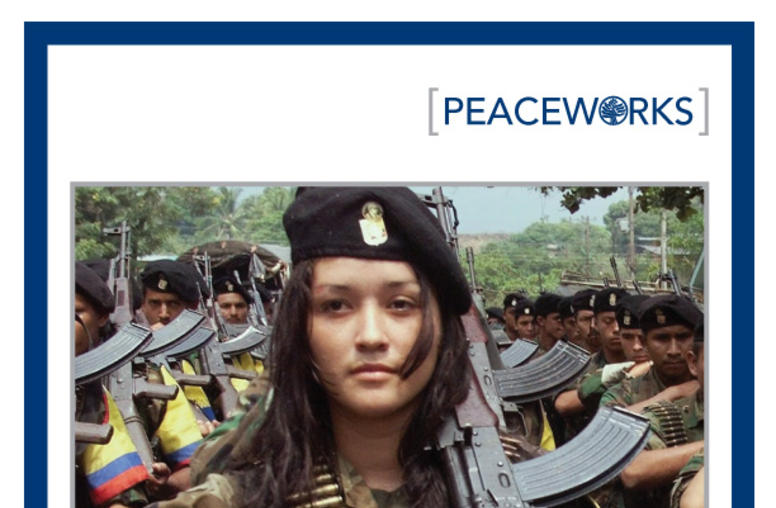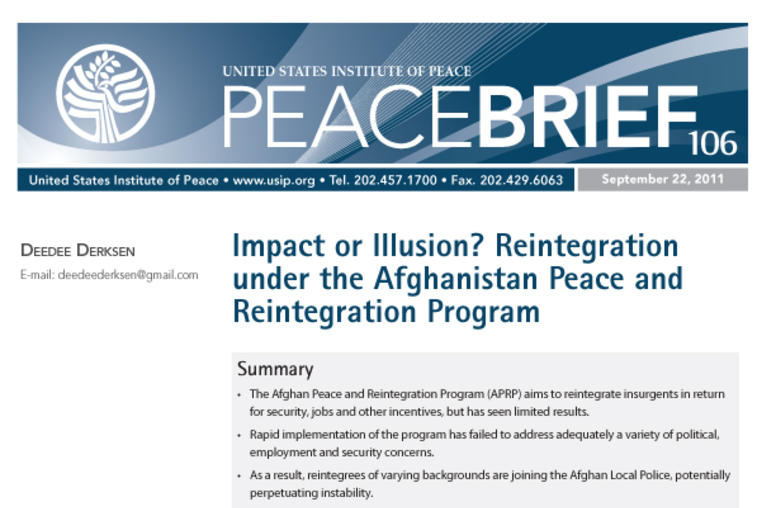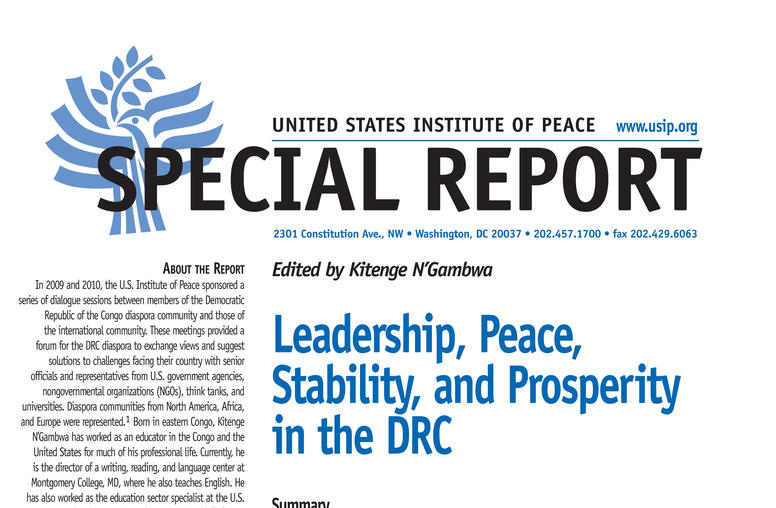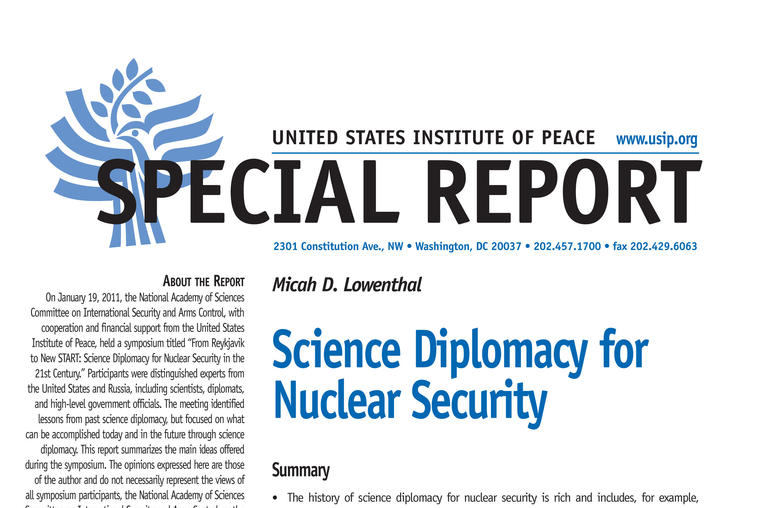Publications
Articles, publications, books, tools and multimedia features from the U.S. Institute of Peace provide the latest news, analysis, research findings, practitioner guides and reports, all related to the conflict zones and issues that are at the center of the Institute’s work to prevent and reduce violent conflict.

Gender, Conflict, and Peacebuilding
A new study reviews the state of research on gender and conflict and calls for increased emphasis on projects that include men and boys, sexual violence in conflict zones, and the relationship between gender identities and violence.
Libyan Official Calls for Libyan Lead in Transition
Libya’s National Transitional Council (NTC), the immediate successor to the ousted regime of Col. Moammar al-Qaddafi, needs significant international help to prepare the North African nation for a democratic future, but Libyans themselves must be in the lead, and outside governments and institutions must show patience as Libya tries to address its many challenges, a key senior official in Libya’s new government told an audience at the United States Institute of Peace (USIP) on September 23.

Impact or Illusion? Reintegration under the Afghanistan Peace and Reintegration Program
The Afghan Peace and Reintegration Program (APRP) aims to reintegrate insurgents in return for security, jobs and other incentives, but has seen limited results.

Leadership, Peace, Stability, and Prosperity in the DRC
People living in the DRC should band together with Congolese diaspora to develop a vision for DRC’s future that can drive governance reform. In this Special Report, diaspora leaders share ideas for invigorating the economy, judiciary, health, education, and democracy.
The Secrets of Peacebuilding: A Conversation with Military Officers
Ending or preventing conflict almost always means talking to the people who understand it best: the women. It was one of many pieces of sage advice USIP Chief of Staff Paul Hughes gave to a group of Air Force officers visiting USIP in September as part of a tour of Washington. The officers are studying the role of the Air Force officer and his or her role in political-military strategy.

Science Diplomacy for Nuclear Security
Nuclear security expert Micah Lowenthal calls on science diplomacy, which played a key role in promoting U.S.-Soviet cooperation, to renewed engagement on current issues: nonproliferation, countering nuclear terrorism, verification of nuclear treaties, and ballistic missile defense.
Preventing Conflict through Participatory Urban Planning in the Niger Delta: CMAP
In Port Harcourt, Nigeria's oil capital and third-largest city, up to 480,000 people living in the waterfront areas of the city face the threat of demolition from the Rivers State government. One third of the city, and 79% of Nigeria's urban population, lives in what the United Nations Human Settlements Programme (UN-HABITAT) defines as “slum conditions.” Mass demolitions, even the threat of mass demolition, poses the possibility of sparking widespread conflict in a country that provides almo...
Haiti in Waiting
Former USIP Jennings Randolph Peace Scholar Louis-Alexandre Berg, who recently returned from a trip to Haiti, provides an update on the political situation and Haitian President Michel Martelly’s plans to rebuild the conflict- and disaster-prone country.
USIP Conference Assesses Social Media’s Role in Conflict
The new role of social media in popular revolutions and other political change is not the inevitable force for good some commentators portray it as, but its complicated effects are promoting a wider transfer of geopolitical power from traditional nation-states to individuals and institutions, according to speakers at a conference held at the United States Institute of Peace (USIP) on September 16.
USIP to Examine Yemen’s Tattered Justice Sector
Yemen is seeing some of its worst violence this year with at least three subsequent days of fighting this week between divided government forces, tribal groups and unarmed pro-democracy protesters, inching the country ever closer to full-blown civil war.